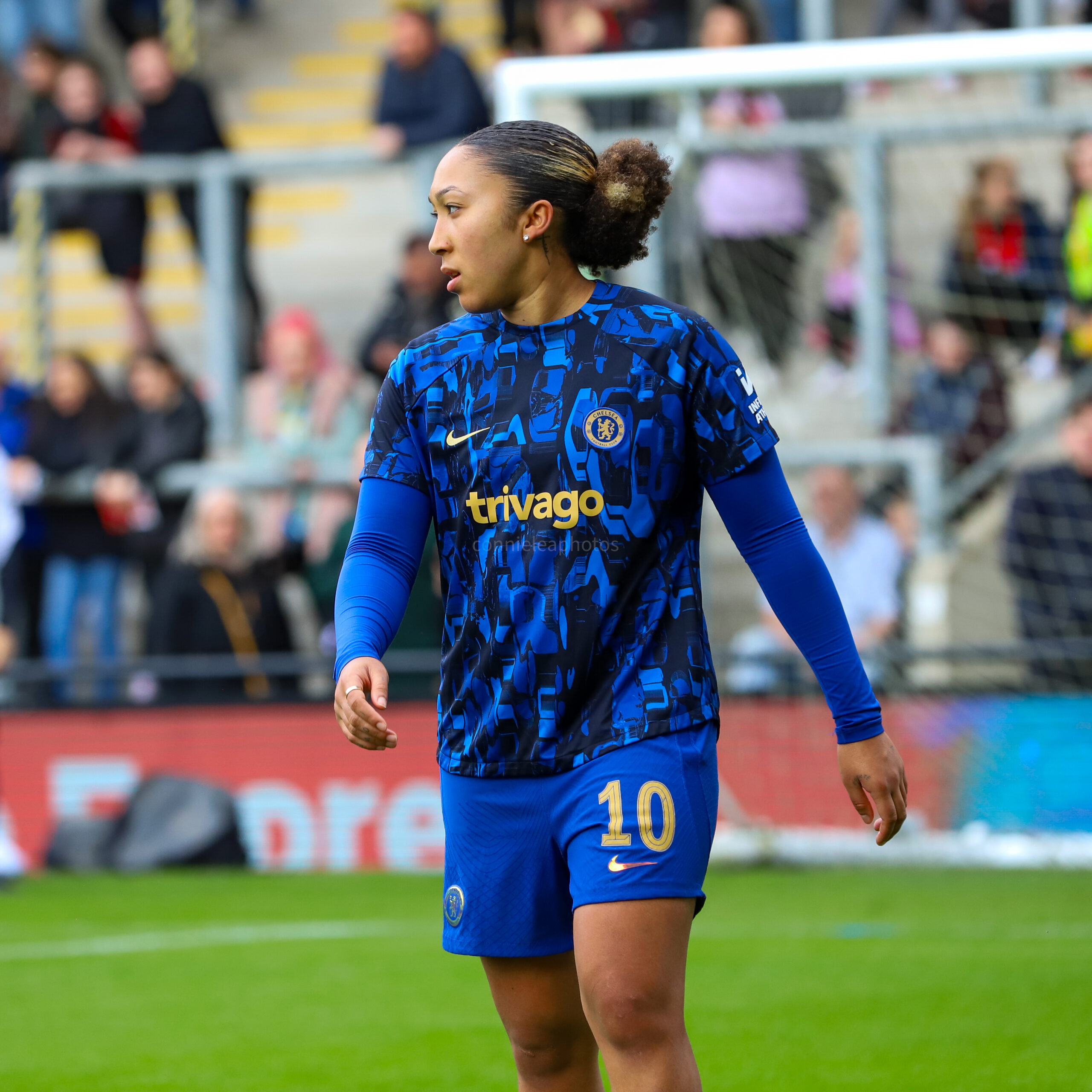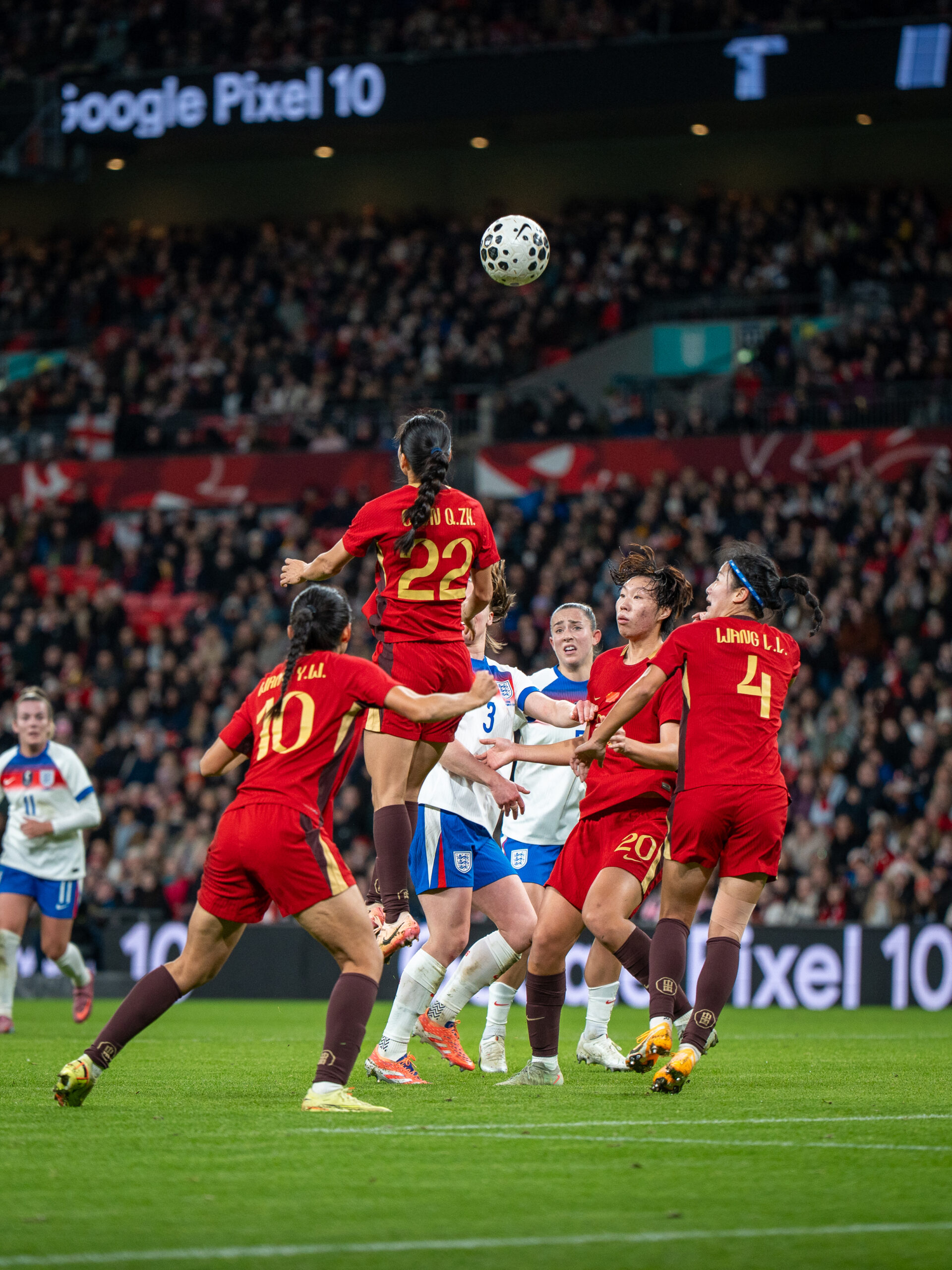The rapid growth of the women’s game has shined a spotlight on a higher number of young football talents, meaning that even the inexperienced players have fans idolising them, while also watching their every move.
Social media platforms have been a catalyst for women’s football’s increasing popularity; they provide fans with a range of content of players, from their best, to arguably some of their worst moments. With the next generation using social media at an even younger age, it is easy for those that the players seek to inspire, to be inspired by a tainted view of their sporting hero.
Lauren James, at the age of just 22, is already a star for both Chelsea and England. Her immaculate on-the-ball technique is undoubted, just as her ability to fire in shots at almost any angle and still find the back of the net. Notably, it wasn’t this at the 2023 Women’s World Cup that took social media by storm.
During England’s round of 16 fixture against Nigeria, James received a red card for standing on the back of Nigerian player Michelle Alozie, an act of frustration after England had struggled to break down the African team during the game. Up until this point, social media described Lauren James as ‘one of the best players of the tournament so far’, yet after this, James was swarmed by abuse online.
Alozie took to her own social media in an attempt to calm the onlooking critics, ‘abeg, rest…all respect for Lauren James’, a message of consolidation to James during the time. Fans of Lauren James turned their messages of support into messages of disgust at her red card. There was a consistent theme that covered the cruellest social media posts, the hatred and disgust was driven by racism and sexism.
Rather than calling a player out in a way that will help them learn and develop, some fans used the moment to be abusive towards James.
While writing this I searched X (Twitter) for ‘Lauren James red card’ to find examples some of the things that people publicly said about her:
‘If we are supposed to treat our women the same as men footballers then… vile abuse on its way.’
‘Never thought I would see this kind of thuggish behaviour in a women’s game.’
‘She’s heartless.’
‘Another England player who thinks they’re better than the team!’
‘Last week her brother claimed she was the best female player, what a joke.’
‘I wonder what would have happened if a Nigerian stamped on her!’
‘She must apply for a work permit to come back to England.’
These are just a few examples of the online hate James received.
The red card Lauren James received was the right decision from the referees in the game, but it typically seemed that the fans weren’t critiquing the challenge itself and rather James as a person.
As the game grows, even more is posted about the players. Sometimes what they do right but mainly just what they do wrong, as the media knows that the more controversial topics usually gain engagement from a larger audience. Even major magazines fuelled the fire saying this moment was what Lauren James would ‘be remembered for’, rather than her incredible performances in the group stage fixtures.
It is clear that the popularity spike of women’s football has brought the attention to footballers at an even younger age than before. Players are in the spotlight who are arguably inexperienced on the world stage and still have years to go in their senior playing career. Fans are still just as critical of the young talent than they are of the senior experienced players.
Ultimately, calling out a footballer to help them grow into a better person and player is something that will help the game develop even further. With the younger audience now using platforms like X and TikTok, educating them on how their idols improve is in fact a positive. However, the constructive criticism is always overpowered by hate online.
It is easier to find someone hating on a player rather than critiquing them with good intent. Something has to change and develop as the popularity of women’s football increases in years to come.



